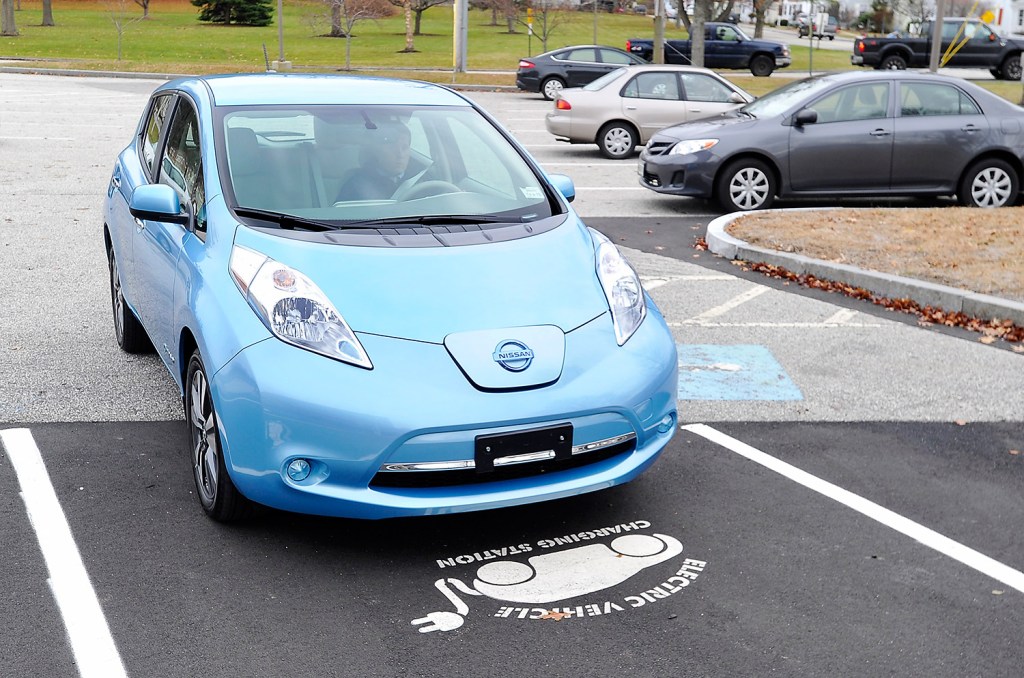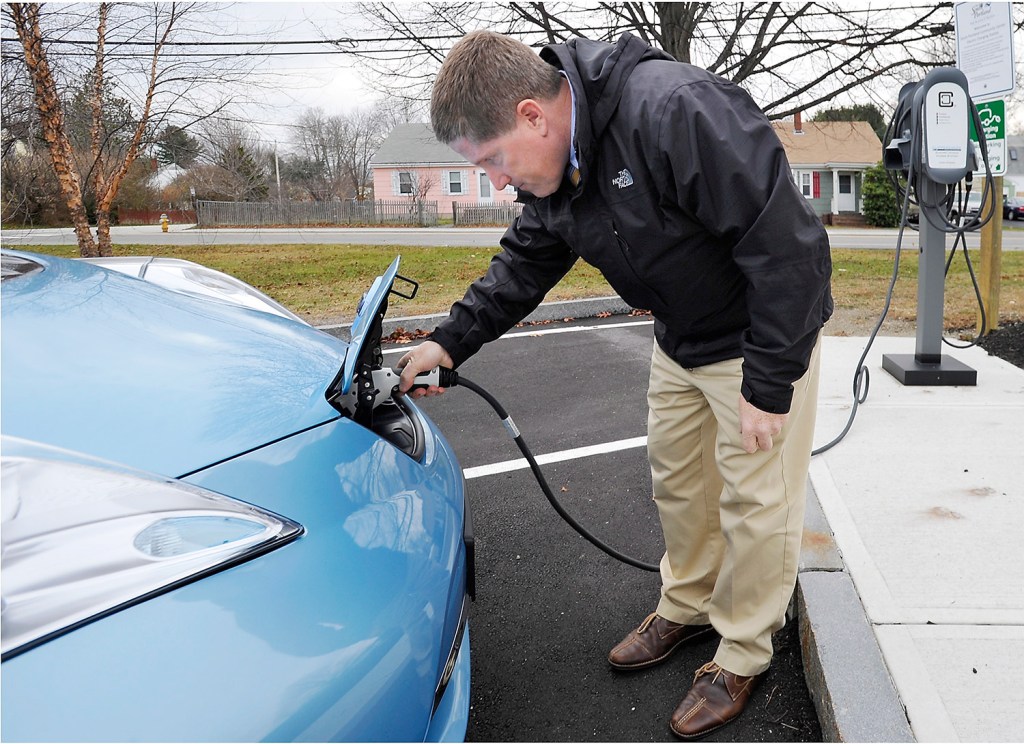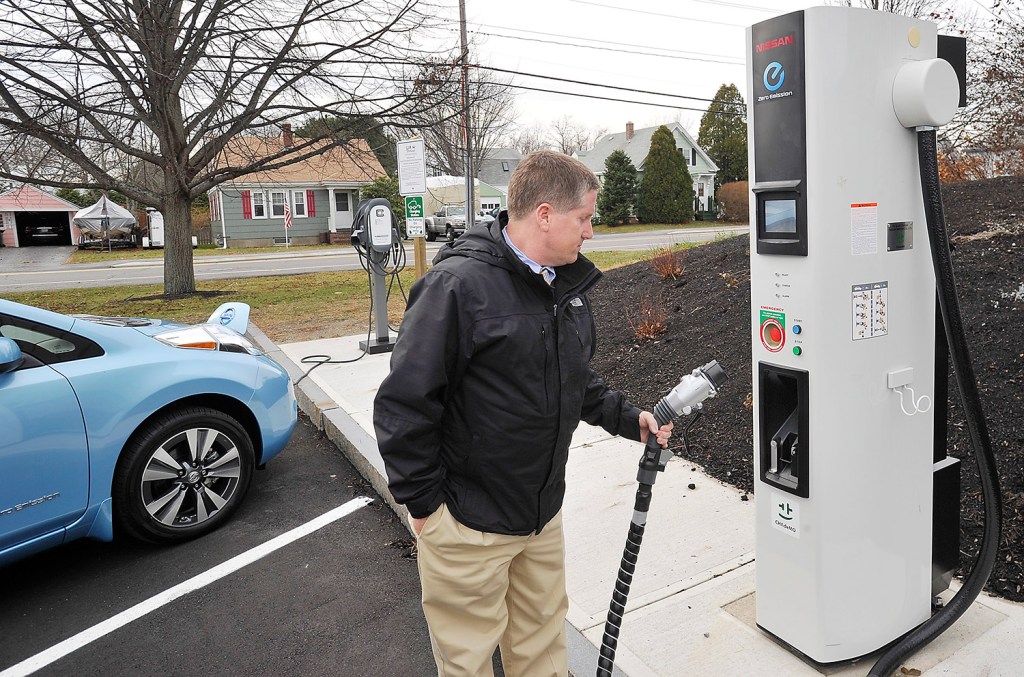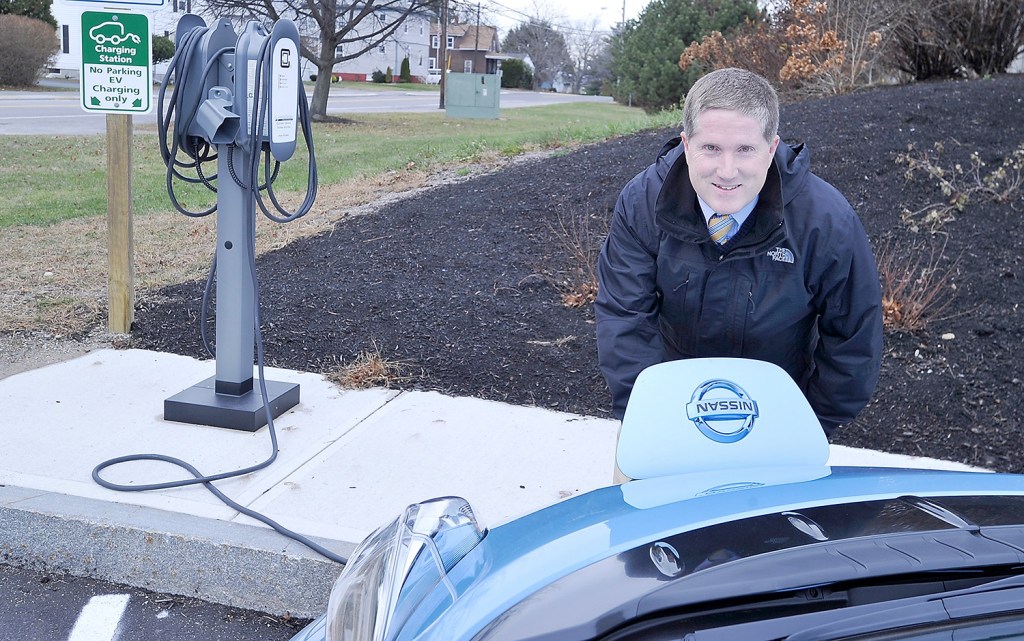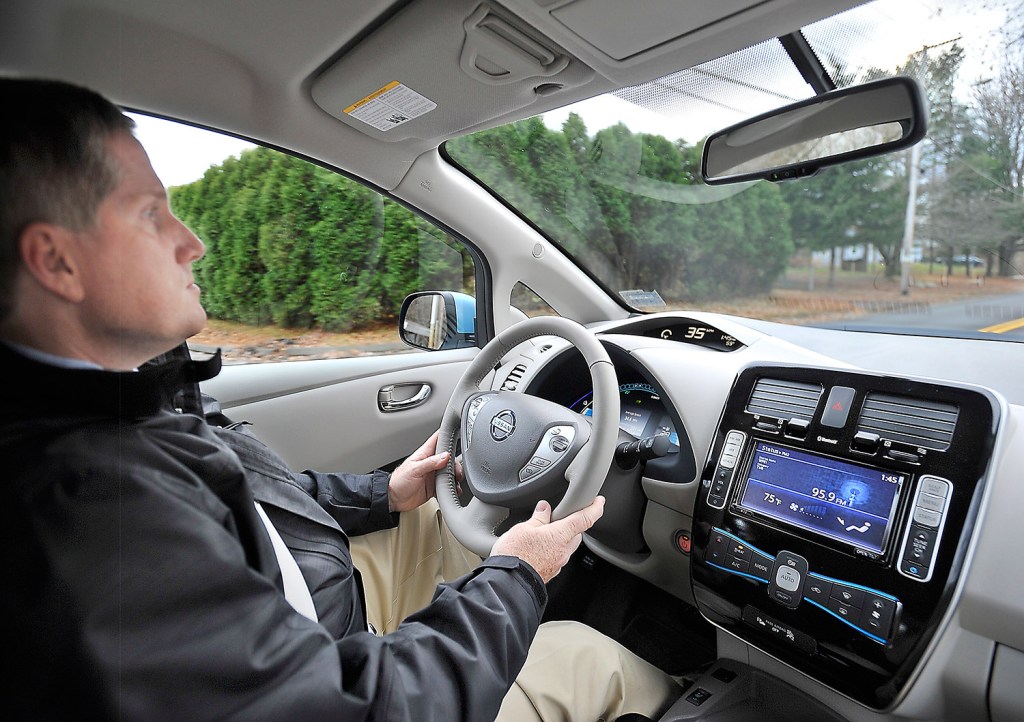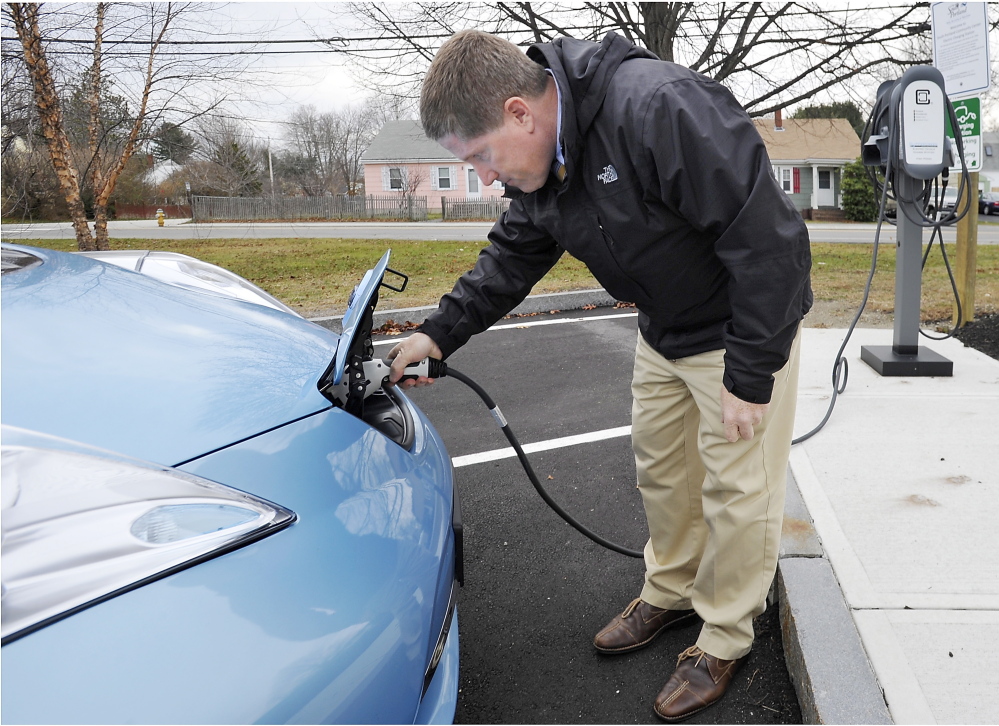SOUTH PORTLAND — The Nissan Leaf barely hummed as City Manager Jim Gailey drove along Highland Avenue, turned onto Evans Street and pulled into the electric charging station at the South Portland Community Center.
The only thing missing from the brand-new sky-blue vehicle, according to Gailey, was a shrink-wrapped body decal advertising that the car is electric and part of the city’s growing effort to reduce its carbon footprint. Soon, it will be a rolling sign.
“We want people to know about this,” Gailey said. “We need to reduce our dependence on fossil fuels. It’s a mindset, more than anything else. But you gotta have the infrastructure in place that makes it easier for people to operate electric vehicles.”
The electric car is the latest addition to the municipal fleet in a city that’s accelerating toward environmental sustainability. The ambitious plan, approved by the City Council this month, includes car-charging stations that, for the time being, will be free for public use.
The Municipal Climate Action Plan also includes a long-shot proposal to develop a “solar farm” on the city’s capped landfill and calls for legislative changes that could help other Maine communities follow South Portland’s lead.
In 2007, the council passed a sustainability resolution and signed onto the U.S. Mayors Climate Action Agreement, pledging to reduce greenhouse gases produced by city departments by 17 percent within a decade. Municipal operations produced an estimated 10,100 metric tons of greenhouse gases that year.
In the wake of that agreement, the city installed solar panels on the roof of the planning department at the former Hamlin Elementary School. It made upgrades to the sewage treatment plant that reduced annual electricity use from 3 megawatts to 2 megawatts. It also converted some municipal buildings to natural gas heat, bought flex-fuel and higher-mileage municipal vehicles, and converted some street lights to LED bulbs.
“Government has to take the first step,” said Mayor Jerry Jalbert. “That’s how you become a progressive community.”
EMBRACING SUSTAINABILITY
Jalbert said city government must embrace sustainability if it expects residents and businesses to follow suit. He noted that South Portland has been able to do what other municipalities might consider too costly in part because the city is financially secure, with a high bond rating and a strong commercial tax base.
The Municipal Climate Action Plan called for adding electric vehicles to the city’s fleet and installing electric charging stations at the community center, the planning department and the assessor’s office next to City Hall.
The plan added significantly to about 35 charging stations across Maine, many of which are at car dealerships, hotels and other companies that provide the service during business hours or for patrons, according to The Sunrise Guide website. A Central Maine Power Co. survey last year found there were about 300 plug-in electric cars in Maine, 40 percent of which were in Greater Portland.
Last week, the council agreed to spend $23,000 of a $127,000 dividend check from ecomaine, the regional trash-burning and recycling facility, to lease two electric cars for three years. The first car arrived this week and the second is expected as early as next week.
Electric cars are considered better for the environment – even when they use power generated by fossil-fuel burning plants – largely because they produce no carbon emissions during operation. Gasoline, by comparison, produces carbon emissions at every step, from the pumping of crude oil out of the ground to the burning of refined fuel in a car’s engine.
The council also agreed to use $42,000 of the ecomaine money to hire a sustainability program coordinator in January – six months earlier than planned. The money represents half of the position’s maximum annual cost, including salary and benefits.
Two charging stations have already been installed at the community center – a standard charger that costs about $1,000 and takes four hours to fully charge a car, and a more expensive quick charger that takes 30 minutes for a full charge. Nissan paid for the $20,000 quick-charging station and CMP paid for the $10,000 installation.
Standard charging stations will be installed at the assessor’s office and the planning department in the coming days. They will use electricity generated by the solar panels on the planning department’s building, which serve both the planning and assessor’s offices.
ReVision Energy installed the $80,000 solar project last year at no cost to the city, said Tex Haeuser, planning and development director. ReVision charges the city 2 cents per kilowatt hour below the market rate for electricity produced by the panels, he said.
FREE CHARGING – FOR NOW
The city’s charging stations will be free for public use because state law prohibits the resale of electricity, Gailey said. City officials plan to seek legislation that would allow them to charge enough to cover the cost of operating the charging stations. Other states allow credit card-operated charging stations, he said.
A full charge can cost $2.50 to $4, Gailey said, depending on the supplier and contract. While electricity rates are expected to spike this winter, the charging stations at the community center are locked in at 6.5 cents per kilowatt hour for two more years, he said.
ReVision also has submitted a preliminary proposal to develop a solar farm on the 28-acre capped landfill off Highland Avenue, next to the city’s transfer station and planned public works facility.
Built in three phases, the farm would ultimately produce 3 megawatts of electricity – enough to meet the power needs of about 600 homes or nearly half of all city departments.
The phases range from five to eight acres in area. Each phase would cost more than $2 million to design and install. City officials have yet to figure out how to pay for the project.
Standing in the way are state laws that limit the size of a solar farm to 660 kilowatts – less than one-third of the proposed 3 megawatt array – and cap the number of customers to nine service meters. City officials plan to seek legislation that would allow such projects to provide low-cost, no-carbon energy to as many customers as possible. Gailey has already sent a letter to Gov. Paul LePage asking him to support their effort.
“South Portland has always been a forward-thinking community,” Gailey said. “We’re never satisfied with the status quo. We’re always looking to better ourselves and this is where we’re heading next.”
Send questions/comments to the editors.


